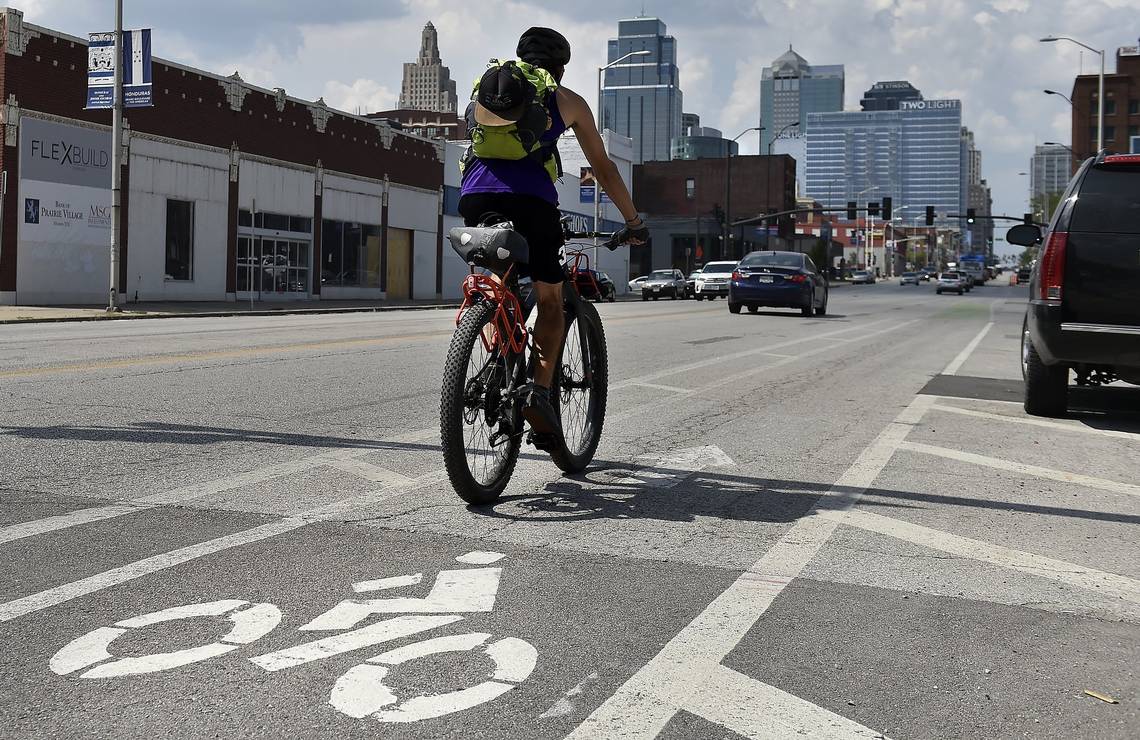North Kansas City Pushes for More Bike Lanes Amid Resident Safety Concerns

Plans for a new bike lane on Howell Street in North Kansas City were moving forward smoothly—until recently. The City Council has now paused the project, citing safety concerns raised by both cyclists and local residents.
The proposed bike lane, which has been in development for several years, was estimated to cost around $818,000. Designed to stretch nearly three-quarters of a mile, the path would begin at East 32nd Avenue and Howell Street, cutting through Macken Park before transitioning onto the roadway as the park ends at Clark Ferguson Drive. From there, the lane would follow the east side of Howell Street until veering onto Iron Street at East 25th Avenue. It would then loop back to Howell Street in front of the North Kansas City Public Library, eventually connecting with existing bike infrastructure along Armour Road.
Community Development Director Xue Wood presented the plans at a recent City Council meeting, seeking approval to move forward with receiving construction bids. However, she acknowledged that alternative routes remain under consideration.
Concerns from residents have stalled progress. George Schluter and Kathy West, both vocal members of the community, voiced strong objections during the council meeting. Schluter pointed out issues such as tree removal, conflicts with bus traffic and school zones, busy intersections, and the high cost of the project. West, a cyclist and member of the city’s newly formed Bike and Pedestrian Advisory Committee, expressed particular concern about the route passing through the intersection of Clark Ferguson Drive and Howell Street. She noted that visibility problems could make this area unsafe for cyclists, especially due to drivers using the slip lane who often don’t stop behind crosswalks.
West also highlighted that the current plan routes the lane through one of the busiest residential areas in the city, potentially making it uncomfortable for cyclists. “If people don’t feel safe or comfortable, they won’t use it,” she said. “We’re looking at spending hundreds of thousands of dollars on something that may go unused.”
Schluter and West proposed an alternate route that would take a left from Howell Street onto Clark Ferguson Drive, already designated for bikes, and connect through Wheel Park to Macon Street. They argued that Macon Street is more suitable because of its stop signs at every intersection, minimizing disruption to existing traffic patterns.
Mayor Jesse Smith echoed many of these concerns, suggesting the city explore what he called a "path of desire"—a route that reflects where cyclists naturally tend to ride. He also floated the idea of placing the lane on the west side of Howell Street, though this idea was quickly met with pushback due to the presence of school buses lining up on that side of the road.
Council Member Lyndsey Magrone suggested considering sharrows (shared lane markings) on Macon Street while focusing efforts on building a dedicated lane on Howell Street, which hosts key locations like the library, splash park, city hall, and North Kansas City High School.
While the northern portion of the planned route through Macken Park received general support, debate over the southern section continued. Some council members favored bidding only on the northern segment, but others warned that doing so would result in an isolated stretch disconnected from the broader bike network. Council Member Anthony Saper noted that unconnected segments rarely get expanded later.
Ultimately, the council decided to delay the bidding process and tasked the Bike and Pedestrian Advisory Committee with its first major assignment: re-evaluating the route options and returning with recommendations.
This isn’t the first time bike infrastructure has sparked controversy in the region. In nearby Overland Park, a recent tragic collision involving an e-bike rider and a vehicle has heightened safety concerns. Elsewhere, some residents have protested what they see as poorly planned lanes that disrupt traffic or harm small businesses.
Still, supporters argue that well-designed bike lanes can benefit communities by offering sustainable transportation options, improving accessibility, and encouraging healthier lifestyles—even for those who aren't avid cyclists.
Post a Comment for "North Kansas City Pushes for More Bike Lanes Amid Resident Safety Concerns"
Post a Comment